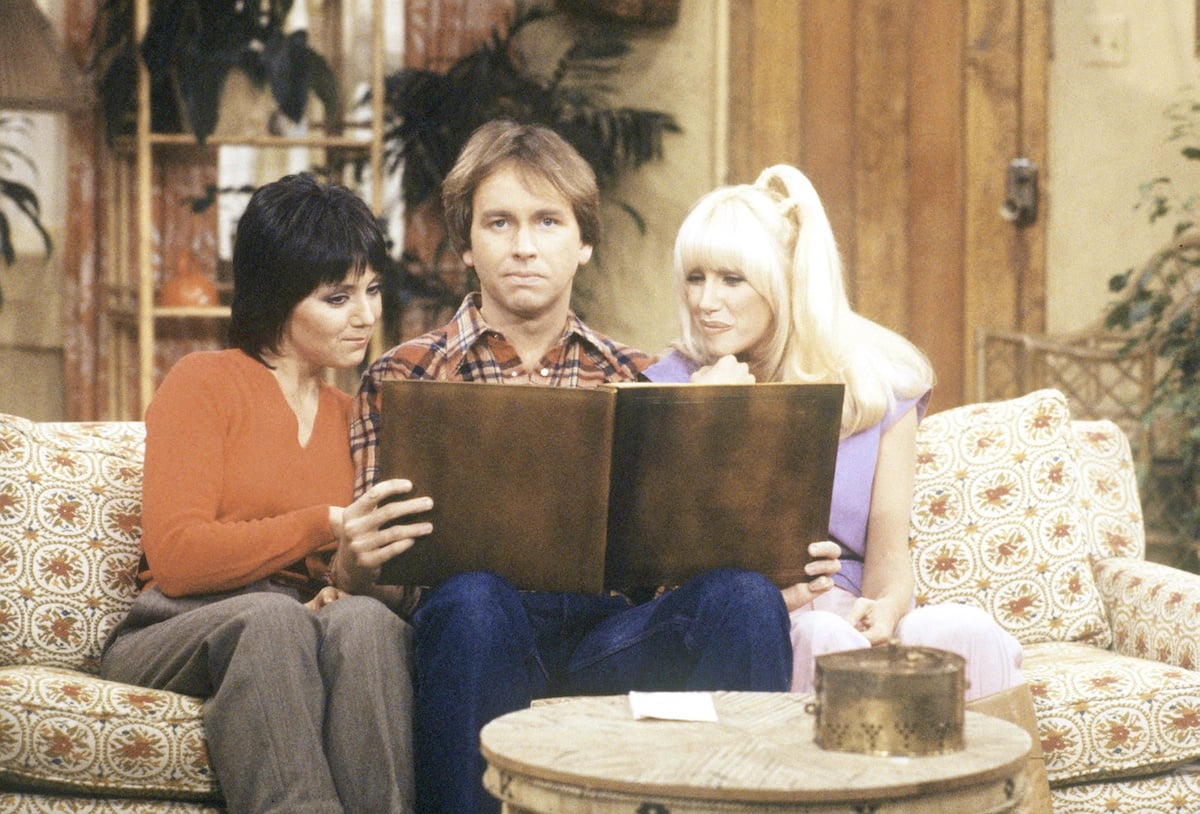
There are definitely some serious issues when it comes to gender equality in Hollywood, and plenty of stars — women and men alike — have been drawing attention to the issue and taking action to address it. The problem feels huge and overwhelming at times, but a quick look back into the not-so-distant past is a great reminder of just how far we have come and a hopeful sign that we’ll make even more headway in the future.
It wasn’t all that long ago that Suzanne Somers was turned into a Hollywood villain for leaving the popular sitcom Three’s Company before its conclusion after a nasty contract dispute. Now we know that her decision was rooted in facing inequities, and the violation was so stark that it would never fly in today’s world.
‘Three’s Company’ was immensely popular

Three’s Company premiered in 1976 and starred John Ritter as Jack, a man who pretends to be gay in order to legitimize his roommate status with two women, Janet (played by Joyce DeWitt) and Chrissy (played by Suzanne Somers). While the advancement of gay rights has certainly made the premise of the show outdated and a little incomprehensible to modern audiences, it was a hilarious ruse at the time it aired.
The show ran for eight seasons until finally coming to a close in 1984. By that time, it had won two Golden Globes and captured the hearts of audiences who found the banter between the characters and their ridiculous situations hilarious to watch.
Suzanne Somers left the show in 1982

When fans are watching a show, they’re most invested in a smooth narrative that doesn’t disrupt their experience of a fictional reality. For the cast and crew, however, these sets are workplaces, and the economic realities are often just as pressing as the creative ones.
Contract disputes and labor battles have been the source of many disruptions for film and television progress over the years, and Three’s Company was hit hard by these impacts.
After four successful seasons on the show, Somers asked for a raise. The network executives declined, and the resulting dispute made for serious disruptions to the show. Somers did appear in Season 5, but her character was often only on screen for a few minutes per episode.
By Season 6, she had departed completely. Later, Somers would open up to Good Housekeeping about the departure: “My contract was up [for] year six and [as I] renegotiated, it became aware that the men were making 10 to 15 times more than me, and I thought, ‘I’m on the number-one show, are the men on lesser shows worth 10 to 15 times more?’ So, I was fired for asking, ’cause they wanted to make an example.”
Suzanne Somers faced gender inequality
As Mental Floss reports, Somers seemingly exorbitant request for a raise from $30,000 per episode to $150,000 per episode was actually about gender equality. That number was representative of Ritter’s contracted pay at the time, and Somers simply wanted a comparable piece of the pie that she had helped create.
Today, this kind of blatant discrimination would be much less likely to happen. Women are working hard to provide more opportunities for equal pay and being more transparent about their wages in order to keep pressure on networks and studios to pay equitably.
Fans, too, are more tuned into the issue and place pressure on executives to level the playing field when it comes to pay and gender equality. Somers may have been demonized as greedy and difficult in the 1980s, but looking back on her demands today shows a different picture.
